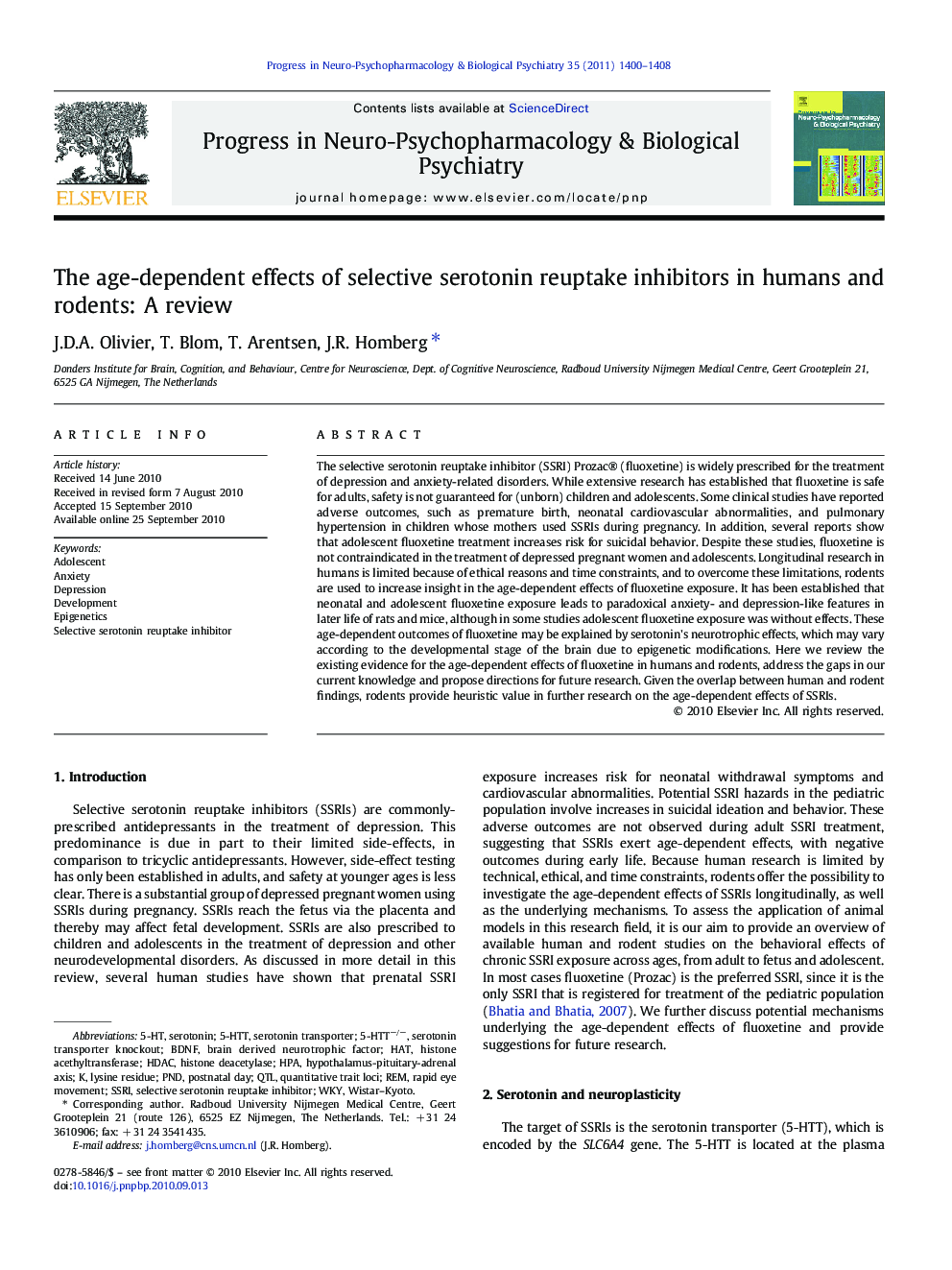| Article ID | Journal | Published Year | Pages | File Type |
|---|---|---|---|---|
| 2564999 | Progress in Neuro-Psychopharmacology and Biological Psychiatry | 2011 | 9 Pages |
The selective serotonin reuptake inhibitor (SSRI) Prozac® (fluoxetine) is widely prescribed for the treatment of depression and anxiety-related disorders. While extensive research has established that fluoxetine is safe for adults, safety is not guaranteed for (unborn) children and adolescents. Some clinical studies have reported adverse outcomes, such as premature birth, neonatal cardiovascular abnormalities, and pulmonary hypertension in children whose mothers used SSRIs during pregnancy. In addition, several reports show that adolescent fluoxetine treatment increases risk for suicidal behavior. Despite these studies, fluoxetine is not contraindicated in the treatment of depressed pregnant women and adolescents. Longitudinal research in humans is limited because of ethical reasons and time constraints, and to overcome these limitations, rodents are used to increase insight in the age-dependent effects of fluoxetine exposure. It has been established that neonatal and adolescent fluoxetine exposure leads to paradoxical anxiety- and depression-like features in later life of rats and mice, although in some studies adolescent fluoxetine exposure was without effects. These age-dependent outcomes of fluoxetine may be explained by serotonin's neurotrophic effects, which may vary according to the developmental stage of the brain due to epigenetic modifications. Here we review the existing evidence for the age-dependent effects of fluoxetine in humans and rodents, address the gaps in our current knowledge and propose directions for future research. Given the overlap between human and rodent findings, rodents provide heuristic value in further research on the age-dependent effects of SSRIs.
Research Highlights► The effects of early SSRI exposure are comparable between human and rodents. ► Early SSRI exposure has potentially teratological and harmful behavioral effects. ► Age-dependent SSRI effects may be due to neurotrophic and epigenetic alterations.
